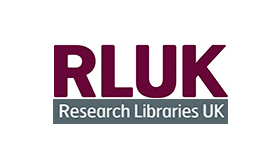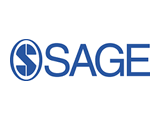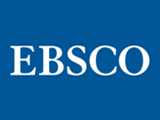The UK consortium of scholarly libraries, Research Libraries UK (RLUK), has recently joined The European Library, a membership organisation that provides services to researchers, with access to more than 200 million records and digital items from all of Europe’s national libraries and a growing number of research libraries.
RLUK’s vision is to provide the best research library support in the world and to work with members and partners, nationally and internationally, in order to shape and realise the vision of the modern research library – a vision importantly shared by The European Library. One of the founding principles of RLUK is recognition of the value that arises from cooperation amongst libraries and the sharing of resources and data. This agreement is a natural extension of that founding principle.
The new cooperation will allow for the ingestion of data from RLUK’s member libraries into The European Library portal, providing researchers across the globe with greater access to digital items and bibliographic records held by these libraries. The data provided by RLUK will also be disseminated via The European Library’s API and developers will be able to create applications to search and display this data.
The data provided by RLUK will additionally be made available as Linked Open Data. This is part of The European Library’s aim of working with its members to expose a set of their combined bibliographic metadata as a CC0 dataset – a dataset openly available for any type of reuse. RLUK’s valuable data will now be integrated into the larger European Library set, thereby providing a rich source of reusable knowledge from Europe’s most prestigious libraries.
Both parties are enthusiastic about the prospect of further stimulating digital innovation in the libraries sector. Dr David Prosser, director of RLUK, has the following to say about the organisation’s involvement:
“We are very excited to be partnering with The European Library and fostering a new spirit of cooperation between our members and the wider European community represented by The European Library. We see many mutual benefits arising from this relationship, but an early concrete outcome will be the release in the new year of the RLUK database of bibliographic records as Linked Data. At over 18 million records this will represent one of the world’s largest Linked Data sets and will provide opportunities for the development of new and innovative products and services to enhance research and scholarship.”
RLUK Chair, Stella Butler also commented to say that “RLUK is delighted to have established this strategic partnership. Working with European colleagues will open up new opportunities – linked data is a significant first step towards increasing the value we deliver to the research community.”
Louise Edwards, Director of The European Library, is equally excited about this new development: “As The European Library expands to cater not just to national libraries but also university libraries and their researchers, we are delighted to welcome RLUK as members. Our ability to work together promises new avenues for sharing and exposing library content, and therefore increasing the impact of libraries on an international scale.”































